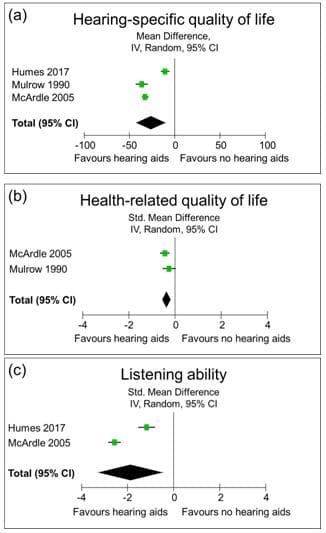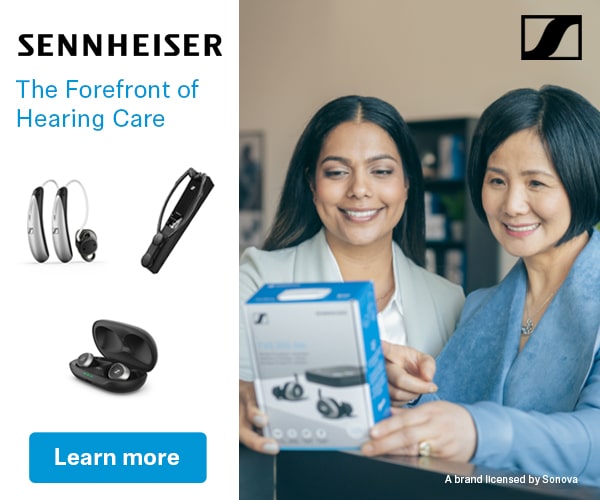New Study Examines Barriers to Hearing Care Services Among Medicare Population
In the January 2019 issue of Health Affairs, a peer-reviewed health policy journal, researchers at Johns Hopkins University’s Cochlear Center for Hearing Loss and Public Health shed light on the accessibility of hearing care services in the Medicare-eligible population.
Using 2013 survey data of Medicare patients who owned or used hearing aids, the researchers examined the barriers to accessing hearing care services. According to the report, poorer older adults who were dually eligible for Medicaid had significantly lower odds of using hearing care services, and were, additionally, twice as likely to report substantial trouble with their hearing.
Their findings, when placed in context to the 2017 Over-the-Counter Hearing Aid Act, which is expected to go into effect in 2020, indicate these barriers to service among economically disadvantaged Medicare patients could be worsened.
The researchers contend that policy changes to Medicare are needed to ensure OTC users are provider the proper level of hearing care service. Access to the article can be found at this gated site here.
Big Names Behind New Direct to Consumer Hearing Aid Company
Seemingly overnight, a new telehealth hearing aid dispensing operation the provides professional services directly to consumers has opened for business. Listenlively.com, which according to their website, partners with Resound, launched a remote care business that offers a pair of conventional hearing aids and two years of remote services with a “Lively doctor” at “half the price of the national average” for hearing aids.
Several well-known audiologists, including Harvey Abrams, James Hall and Bopanna Ballachandra are listed as employs or advisors for the start-up company. The website offers an on-line hearing test and communication questionnaire as part of their self-directed care process.
HHTM has reached out to the company for further details and is awaiting a response. The website can be accessed here.
News on Hearing Loss and Fall Risk
In addition to the recent unveiling of Starkey’s award winning Livio AI hearing aid, which reportedly will soon have fall detection technology, a recent Journal of the American Geriatric Association study indicates that most older adults are unaware of fall risks associated with medications used for various medical conditions, but once they were made aware of the risks of falling, the older adults were willing to change medications if the provider communicated the risks.
According to the study, about 20% of all respondents reported using at least one class of medication that increased their risk of falling. The researchers found that adults aged 65 years and older were more likely to change medications they used for pain, sleeping, mood or anxiety if they were informed of an increased of falls compared to adults between the ages of 55 to 64 years.
Among all respondents using these medication classes, less than one‐third knew the potential fall‐related side effects. However, most of them expressed willingness to change their medication if advised by their healthcare provider.
The study demonstrates the need for providers who work with older adults to communicate fall risk associated with medication use for several common conditions. The JAGS study can be accessed here.
Taco Bell Fires Worker Who Refuses to Service Deaf Customer
A Kettering, Ohio Taco Bell employee was fired recently when he called the police on a deaf man at the drive-thru after refusing to serve him. A January 4 Yahoo! News story details the events that led up to the employee losing his job as a result of refusing service to the man, which can be read here.
Hearing loss consultant and HHTM Assistant Editor-In-Chief, Gael Hannan, was quoted in the Yahoo! piece from a 2013 article entitled Fast Food Fury: Hearing Loss & The Drive Thru.
The Disconcerting False Air-Bone Gap
Many clinicians have been troubled by the commonly occurring air-bone gap at 4KHz. This is something that has been the topic of many back-office conversations among audiologists for decades – just think of the number of conversations between audiologists and otolaryngologists over the years trying to explain this equivocal finding.
The Jan/Feb issue of Audiology Today provides some valuable insight on where this problem can from, how to fix it and some of the ways to cope with the problem until this failure in standards is addressed.
If you are a member of the American Academy of Audiology, you can read the full article here.
They Didn’t Invent Whispering for Compliments
Comedian Brian Regan has a new series, Stand Up and Away, and in the first episode, you can watch him poke fun at speech audiometry as well as amplification devices – you know, the ones we fondly refer to as PSAPs.
Netflix subscribers can view the new series on demand.







